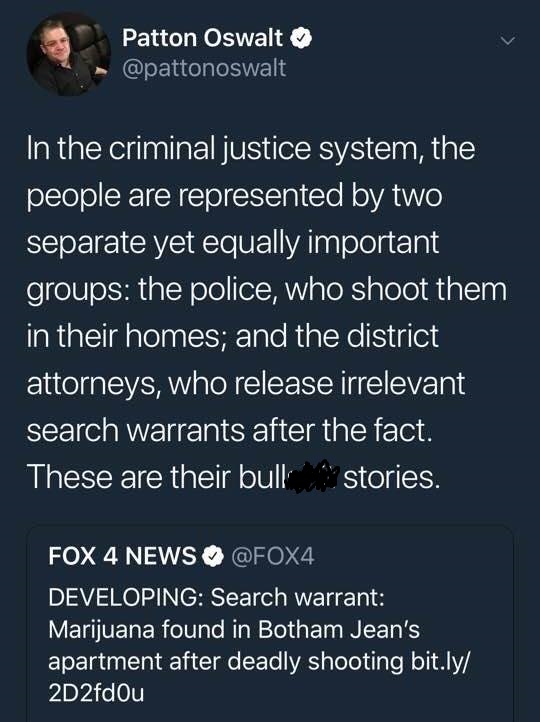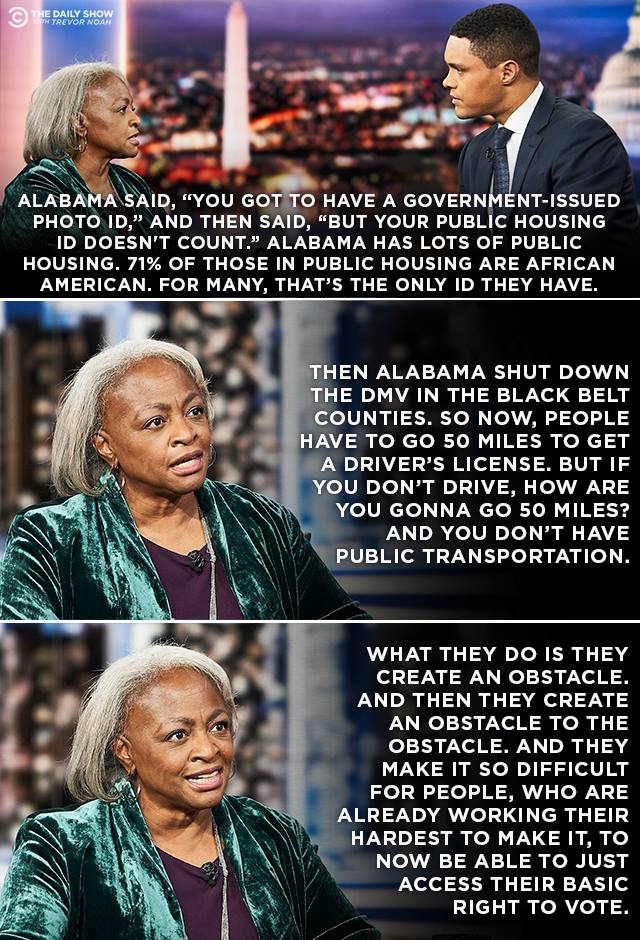A police officer in Prince George's County, Maryland,
was charged this week with raping a woman during a traffic stop. He's
pleaded not guilty, but it's a disturbing headline -- even more disturbing when you consider there are hundreds more like him.
Yes, hundreds. According to
research from Bowling Green State University, police officers in the US were charged with forcible rape 405 times between 2005 and 2013. That's an average of 45 a year. Forcible fondling was more common, with 636 instances.
Yet experts say those statistics are, by no means, comprehensive. Data on sexual assaults by police are almost nonexistent, they say.
"It's just not available at all," said Jonathan Blanks, a research associate with the Cato Institute's Project on Criminal Justice. "You can only crowdsource this info."
The BGSU researchers compiled their list by documenting cases of sworn nonfederal law enforcement officers who have been arrested. But the 2016 federally funded paper, "
Police Integrity Lost: A Study of Law Enforcement Officers Arrested," says the problem isn't limited to sexual assault.
"There are no comprehensive statistics available on problems with police integrity," the report says, and no government entity collects data on police who are arrested.
It adds, "Police sexual misconduct and cases of police sexual violence are often referred to as hidden offenses, and studies on police sexual misconduct are usually based on small samples or derived from officer surveys that are threatened by a reluctance to reveal these cases."
The nation's foremost researchers on the subject, thus, must often rely on published media reports. The BGSU numbers, for instance, are the result of Google alerts on 48 search terms entered by researchers. The scholars then follow each case through adjudication.
While those numbers represent a fair portion of cases, arrests rely on a victim making a report and a law enforcement agency making that report public, after an arrest or otherwise. With sexual assaults by police officers, neither is guaranteed.
Why the numbers are lacking
One of the greatest impediments to understanding the scope of police sexual assault is the victims' reluctance to report the crime.
"Who do you call when your rapist or offender is a police officer? What a scary situation that must be," said Philip Stinson, an associate professor of criminal justice who served as principal investigator for the police integrity paper and whose research assistants maintain the BGSU database.
No one interviewed for this story could give an estimate, even ballpark, on how underreported these types of crimes might be.
"I have to think it's a much worse problem than my data suggests," said Stinson, himself a former police officer.
There are several reasons behind the muddy data. The federal government cannot compel states to make the nation's 18,000 law enforcement agencies report the numbers. Even if they could, the Justice Department wouldn't have the resources to oversee and maintain such a database, Blanks said.
Unions also work hard to protect police officers and their reputations, he said.
"They don't want their officers and membership shamed if something goes wrong," Blanks said.
There also can be legal hurdles to obtaining basic information in such cases, he said, "and that's on purpose." Some states' laws shield the identities of police officers who commit crimes, he said, while some jurisdictions include nondisclosure agreements in victim settlements.
"The system is rigged to protect police officers from outside accountability," Blanks said. "The worst cops are going to get the most protection."
Victims include suspects and those police are supposed to protect
What data is available paints a jarring picture. One statistic from Stinson indicates that for every sexual assault that makes the news, there are almost always more victims -- on average, five more.
About half of the victims are children, researchers say. Stinson has gotten accustomed to hearing his research assistants proclaim during their work, "Oh my God, it's another 14-year-old."
Victims can include both the people police are supposed to be chasing and those they're charged with protecting, according to the police integrity paper.
"Opportunities for sex-related police crime abound because officers operate in a low visibility environment with very little supervision," it says. "The potential victims of sex-related police crime include criminal suspects but also unaccompanied victims of crime."
Experts say officers who prey on people they encounter while on duty take advantage of the trust the public places in police as an institution.
"Police have a reputational advantage over anyone, especially someone accused of a crime," Blanks said, explaining that
a regular Gallup poll shows again and again that police are third only to the military and small business owners in terms of trust. "People want to believe the police."
Offenders who seek to victimize people know this, experts say, and they strategically select victims, bolstering their chances of not getting caught.
Researchers find that a predominance of the victims fall into at least one of several categories: They have criminal records, are homeless, are sex workers or have issues with drug or alcohol abuse. Essentially, predatory cops are "picking on people who juries won't believe or who don't trust police," Stinson said.
The ripple effect
To be clear: The majority of police officers are good people, not sexual predators. Every expert interviewed for this story concurs on this point. But the problem is much larger than individual officers, said author and former Seattle Police Chief Norm Stamper.
"I think it's a huge problem," he said. "In reality, there's probably no law enforcement agency that has not had this problem."
The ripple effect can be devastating to a community. Stamper, who was a policeman in San Diego for 28 years before taking the helm in Seattle in 1994, recalled when
California Highway Patrol officer Craig Peyer was convicted of the on-duty killing of student Cara Knott after a traffic stop.
No San Diego officer was tangentially involved, yet the department experienced enormous trust issues with the community, he said. Residents were fearful and some motorists were anxious about being pulled over, said Stamper, whose
books address the "dark side" of policing and how to fix it.
"It cheats good cops," he said. "If a police officer is arrested for having fondled a DUI suspect in a jurisdiction, that affects all officers."
The trust issue is only exacerbated by the "blue wall" of silence that's erected when an officer is accused of a crime, he said. That's to be expected, Stamper said, because officers rely heavily on each other, especially in dangerous situations, and ratting out a colleague could mean trouble for an officer the next time she or he needs backup.
"If I'm a snitch, then the chance that my fellow officers will not have my back is significant," the former police chief said.
Some possible solutions
Stamper and others believe the solution lies in revamping police culture.
"The paramilitary, bureaucratic structure produces a dysfunctional culture," Stamper said, adding that for one of the "most delicate and demanding" jobs in America, officers largely go unsupervised.
Specific to sexual assault, experts would like to see departments enact:
- Policies "to make victims feel safe," Stinson said, which could include online or anonymous reporting and special officers trained in dealing with sexual assault victims
- GPS tracking of officers, especially those with take-home vehicles, and monitoring of officers. If a supervisor notices a patrolman predominantly stops women between the ages of 18 and 30 at the same time of night in the same part of town, it would raise red flags
- Rules forbidding departments from hiring officers who were fired from other agencies, which happens too frequently, Stamper said
- Mandates that officers must activate their bodycams and dash cams and be punished if they don't. (This will actually vindicate officers more often than not, experts say)
- Occasional sting operations, involving internal affairs, aimed at ensuring police officers are appropriately interacting with the public
"It's critical supervisors trust officers, but trust is earned," Stamper said, adding that the job is too important to trust officers blindly.
Police chiefs and sheriffs defending bad cops also erodes trust, Stamper said. He finds himself frustrated, he said, every time he sees a police executive step to a podium to decry the "bad apples" responsible for a crime that has tainted a department.
"If they repeatedly go back to that bank of microphones to bemoan the bad apples, it's time to look at the barrel. ... Look at the orchard," he said.
Are national standards in order?
Accountability is critical to changing police culture, experts say.
Stamper believes uniformity -- via the licensing of individual officers and the certification of police departments -- is key.
All 18,000 departments operate under their own rules, based on their traditions, policies, procedures and recruitment methods, he said. He believes creating national standards -- not for small things, but for larger constitutional issues -- could improve the quality of policing.
If a licensed officer were to violate someone's rights -- by illegally searching or arresting them, manipulating evidence, using unnecessary force or, of course, engaging in sexually predatory behavior -- that officer's license would be yanked.
Likewise, a city police department with a pattern of violations could lose its certification and be taken over the by the county. An offending sheriff's department could be taken over by the state, he said.
It's pie in the sky, Stamper acknowledges, but until America changes the nature of the conversation around policing, things are destined to remain the same when it comes to crooked cops.
"The forces of resistance are powerful," he said. "If you push the system, it's going to push back with equal or greater force."



